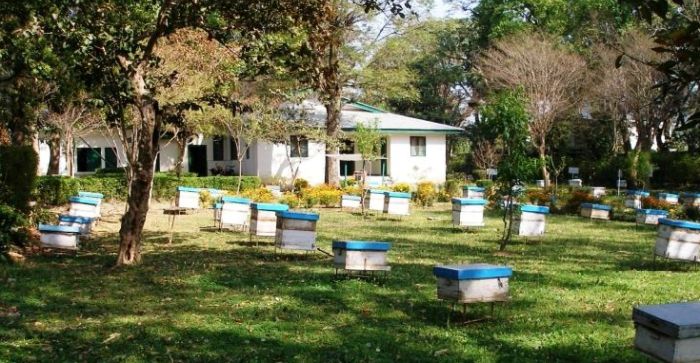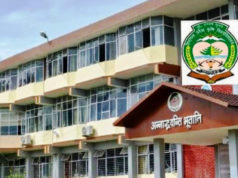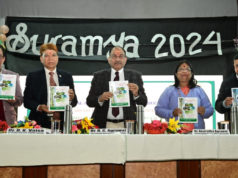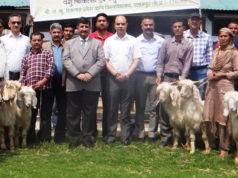Palampur: CSK Himachal Pradesh Agriculture University has decided to upgrade its historical Bee Research Station at Nagrota Bagwan to a Bee Heritage Farm of India.
The Agriculture University has submitted a mega project worth Rs. 6.20 crore to the Indian Council of Agricultural Research for this purpose and is hopeful that it will be sanctioned soon so that work is initiated in the Golden Jubilee year of H.P. Statehood.
Nagrota Bagwan Bee Keeping station was established in 1936 under the Department of Agriculture, Punjab.
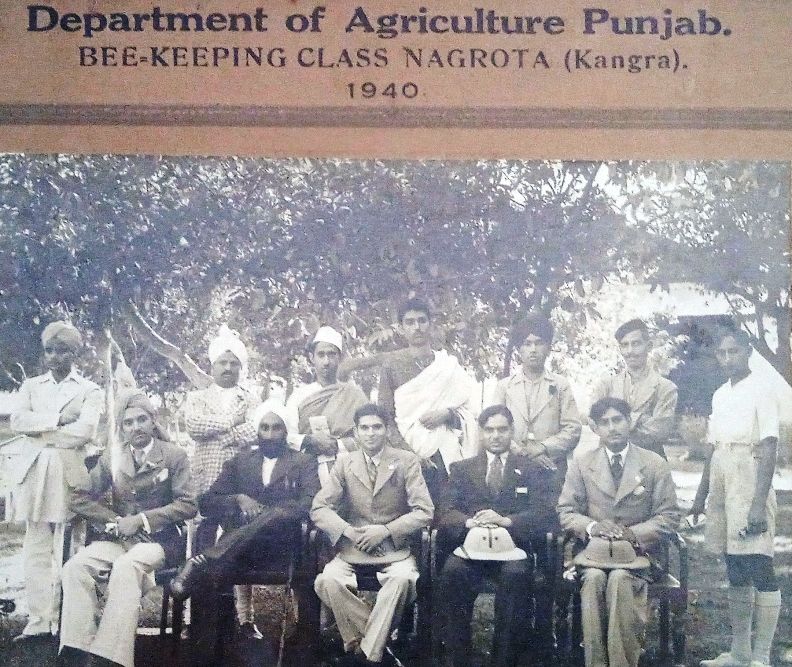
“It an important station for the information and technical knowhow for beekeeping and is a pioneer for introducing exotic Apis Mellifera bee, commonly known as European Honey bee, in the country in 1964,” said H.K.Chaudhary, Vice-Chancellor.
Prof. H. K. Chaudhary further added that the heritage farm is a role model for beekeeping in the country and will be equipped with all modern research and teaching facilities for the benefit of beekeepers from north-western Himalaya and other parts of India.
The Vice-Chancellor informed that scientists learnt about European honey bee species Apis mellifera which produce 5-10 times more honey as compared to our indigenous bee A. cerana and started import efforts and were successful in establishing this exotic bee in country in 1964 by Dr. A.S. Atwal and. O.P. Sharma at this Station. They used inter-specific queen introduction technique which involved introduction of A. mellifera mated queens imported from various continents in de-queened colonies of A. cerana. This is the landmark contribution of this station and paved the way for scientific rearing of bees and making beekeeping a profitable venture in the country as several colonies were supplied by this station throughout the country. In 1986, the station also supplied A. melilifera colonies to Bhutan. The management techniques were standardized, colonies were multiplied and distributed to different agencies from 1975-1986.
At present, Himachal Pradesh has more than 84000 colonies of this exotic bee with annual production of 800-1200 MT of honey. At national level, about 3.5 million colonies of exotic and indigenous bees are maintained in traditional and modern bee hives producing over 120 thousand MT of honey with an export of 61.4 thousand tonnes worth Rs. 1.25 thousand crore. Migratory beekeeping during the year 1983 was vision and effort of the University that India witnessed amber revolution or honey kranti during 1990. Besides producing honey, honey bees are excellent pollinators, and pollination of crops by honeybees is most effective and cheapest method of increasing crop yields.
To achieve the mission of doubling farmers; income by 2022, beekeeping holds considerable potential to meet the set targets. Prof Chaudhary said that the diverse flora in north-western Himalaya yields high valued unifloral and multifloral honey and provides ample opportunities in creating self-employment among educated youth.


